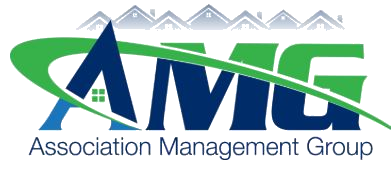Mastering Focus in a Distracted World: Essential Habits for HOA Professionals
/In today’s fast-paced digital landscape, staying focused isn’t just a personal challenge—it’s a professional necessity. For those of us in the HOA management industry, distractions are everywhere. Emails flood in, homeowners call with urgent questions, board members require updates, and our own devices constantly pull at our attention.
At Association Management Group (AMG), our success depends on our ability to concentrate, prioritize, and execute. Yet, with so many demands, it’s easy to feel scattered. How can we reclaim our focus and stay productive in a world designed to disrupt us? Drawing from research and real-world experience, here are seven habits that can help you sharpen your focus and enhance your effectiveness—whether you're managing properties, leading a team, or supporting a community.
1. Set the Stage for Deep Work
Think of your brain like a high-performance engine—it needs the right conditions to function at its best. Just as we remind HOA boards to set clear meeting agendas for efficiency, we must create an environment that supports deep focus.
- Turn off notifications during critical tasks. Research shows that a single distraction can take 23 minutes to recover from—an expensive cost in our line of work.
- Designate a workspace free of unnecessary clutter or noise, signaling to your brain that it's time to concentrate.
- Batch similar tasks together instead of switching between emails, calls, and reports. This reduces cognitive load and improves efficiency.
Example: Imagine a community manager trying to complete annual budget reports. If they check their inbox every five minutes, the constant context-switching slows them down. Instead, by setting a dedicated 90-minute "focus block," they finish faster and with fewer errors.
2. Identify Your Peak Focus Hours
Not all hours of the day are created equal. Studies on productivity reveal that most people hit peak concentration mid-morning and mid-afternoon. Understanding your personal energy rhythms allows you to schedule important work accordingly.
- Track your energy levels for a week. When do you feel most focused? When does your attention wane?
- Schedule high-priority tasks—like strategic planning or contract negotiations—during peak mental hours.
- Save administrative tasks—such as emails or routine follow-ups—for times when focus naturally dips.
Example: A regional director overseeing multiple HOA properties schedules financial planning meetings at 10 AM when they’re most alert, saving email responses for the afternoon slump.
3. Reduce Decision Fatigue
HOA managers and support staff make countless decisions daily—from resolving homeowner disputes to coordinating maintenance. Over time, decision fatigue leads to procrastination and poor judgment.
- Automate routine decisions. Create templates for common communications (e.g., violation notices, fee reminders) to reduce mental strain.
- Use standardized processes for common workflows, such as onboarding new communities.
- Prioritize three key tasks daily instead of reacting to every issue that arises.
Example: Instead of deciding each time how to address late assessments, a property manager creates a pre-written escalation policy, allowing them to act quickly while staying consistent.
4. Train Your Brain to Recognize Distractions
Distractions aren’t just external (calls, emails, social media); they’re often internal—habitual behaviors that derail focus. The key is meta-awareness—recognizing these impulses and redirecting attention.
- Ask yourself: “Why am I checking my phone right now?” Is it boredom, stress, or avoidance?
- Create friction between you and distractions. Use an app blocker or keep your phone in another room.
- Use a physical notepad instead of opening another tab to jot down ideas, avoiding digital detours.
Example: A community manager realizes they reflexively check social media between meetings. By keeping a notepad for quick thoughts, they stay engaged without the risk of a 20-minute scrolling session.
5. Strengthen Focus Through Clear Goal Setting
Clarity drives focus. As William James, the father of American psychology, said: “The art of being wise is the art of knowing what to overlook.”
- Write down your daily goals and place them where you can see them.
- Tie tasks to a bigger purpose. For example, instead of "responding to homeowner emails," frame it as "enhancing community satisfaction by resolving concerns."
- Use visualization techniques—picture the feeling of completing a project successfully.
Example: Before a board meeting, a manager visualizes a productive discussion leading to a decisive vote on a new policy. This mental rehearsal reduces anxiety and sharpens focus.
6. Prioritize Real Breaks (Not Digital Escapes)
Scrolling on your phone isn’t a real break—it’s another form of cognitive input that exhausts the brain. Instead, focus on restorative activities:
- Step outside for fresh air between tasks.
- Engage in short physical movement, such as stretching or walking, to boost circulation.
- Practice mindful breathing to reset your focus.
Example: An assistant property manager feeling overwhelmed takes a five-minute walk outside instead of browsing emails during lunch, returning refreshed and ready to tackle the afternoon.
7. Cultivate Stronger Conversations
HOA management is built on relationships—with homeowners, vendors, and board members. But in an era of distractions, true listening is becoming rare.
- Put your phone away during meetings—your attention signals respect.
- Use active listening by paraphrasing what others say before responding.
- Pause before replying to allow for more thoughtful responses.
Example: A board president shares concerns about landscaping costs. Instead of multi-tasking, the manager fully listens, asks clarifying questions, and provides a well-considered response—building trust in the process.
Final Thoughts: Attention is Your Competitive Advantage
At AMG, our ability to focus directly impacts our success. Whether negotiating vendor contracts, resolving community issues, or leading strategic growth, how we manage attention determines our results.
By implementing these habits, you’ll not only increase productivity—you’ll feel less overwhelmed and more in control of your day. The best part? The more you practice, the easier focus becomes.


















